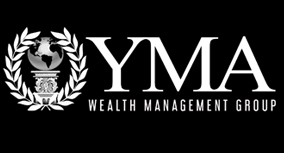It is up to you to choose whether saving or investing is a good option to reach your financial goals. But, for specific goals, one is good than the other. Whether you are starting or working before, it is difficult to know when you need to save and when you need to invest.
Saving is the safer route because the dollar amount in the bank account will not reduce until you withdraw funds, but interest rates on savings accounts do not let the money grow rapidly. Unfortunately, interest rates are frequently lower than the inflation rate.
This means your savings can lose buying power over time. It is tempting to want to invest to receive high returns and beat inflation. Unfortunately, the value of investments will not always go up. In a few cases, investments can become worthless. Blindly investing can actually cost you. Considering investing? Gain the help of professional – wealth management services.
Saving versus investing explained
Saving is the act of putting away money for future expenses and needs. When you go for saving money, you should have the cash available for it and also for use instantly. However, saving may be used for long-term goals, particularly when you need to ensure you have the money at the right time in the future. Savers deposit money in a low-risk bank account. Those looking to maximize their earnings should go for the high annual percentage yield (APY) savings account they can find. Investing is the same as saving in that you are putting away money for the future, except you are looking to get a high return in exchange to take on more risk. Usual investments include stocks, bonds, and exchange-traded funds, and ETFs. You will utilize an investment broker or brokerage account to purchase and sell them. If you are looking to invest money, you need to plan to keep the funds in the investment for a minimum of 3 to 5 years. Investments may be volatile over short periods, and you can lose money on them. So, it is essential that you invest money that you will not need instantly, particularly within a year or two.
Should you invest or save?
Here are more details on whether you should invest or save.
Reasons to use a savings account
It is good for you to use a savings account rather than investing if:
You want to spend money in a year, or sooner. By using a savings account, you have the risk of losing the money that you saved off the table. Consider high-interest savings account if you are saving for a purchase that is coming up relatively soon. For instance, if you are looking to purchase a home in the next year and you have saved sufficient for a down payment, you can put that money in savings to ensure it is available when you need it.
You are building an emergency fund. If you are setting aside money to use in case of an emergency, you are good off keeping it in a savings account, where you can access it rapidly.
You start to save. Perhaps you have reached the point where you have paid off most of your debt and you are beginning to save for the future. In that case, a savings account may help you practice better-saving habits unless you are ready to move those funds into an investment account.
You are completely uncomfortable with investment risk. You realize you aren’t going to make an important return in the long run, but you are comfortable with that if it means you will not lose money. Keep in mind that you are taking the risk that your money will not grow at a similar rate as inflation.
Reasons to invest instead of saving
It is good for you to invest rather than save if:
You are making long-term plans. Whether you are saving for retirement, and for the college tuition of your newborn, investing may be especially beneficial once you begin counting time in decades. You will see the money grow while simply outstripping the inflation rate.
You have prepared an emergency fund. Once you have got a plan to cover you in case of an emergency unemployment, eviction, and dentist bills. You will have excess cash to save. It has the potential to do additional work for you in an investment account than it’ll in a savings account.
You should take advantage of the stock market growth. The market will be interesting once you have money. It may be gratifying to see changes in the market and know they are benefitting you directly.
How much you should save and how much you should invest?
Before you open an investing account, ensure you have got a plan for unexpected expenses. Plan to cover 3 months of expenses if you are single, and 6 months of expenses if you have a family and are the primary income earner. Once you have got a plan for unexpected expenses, you can begin investing more savings. We recommend that you aim to invest 10 percent take-home pay to begin. The easy way to stay on track is to set-up automatic deposits every time you get paid.

